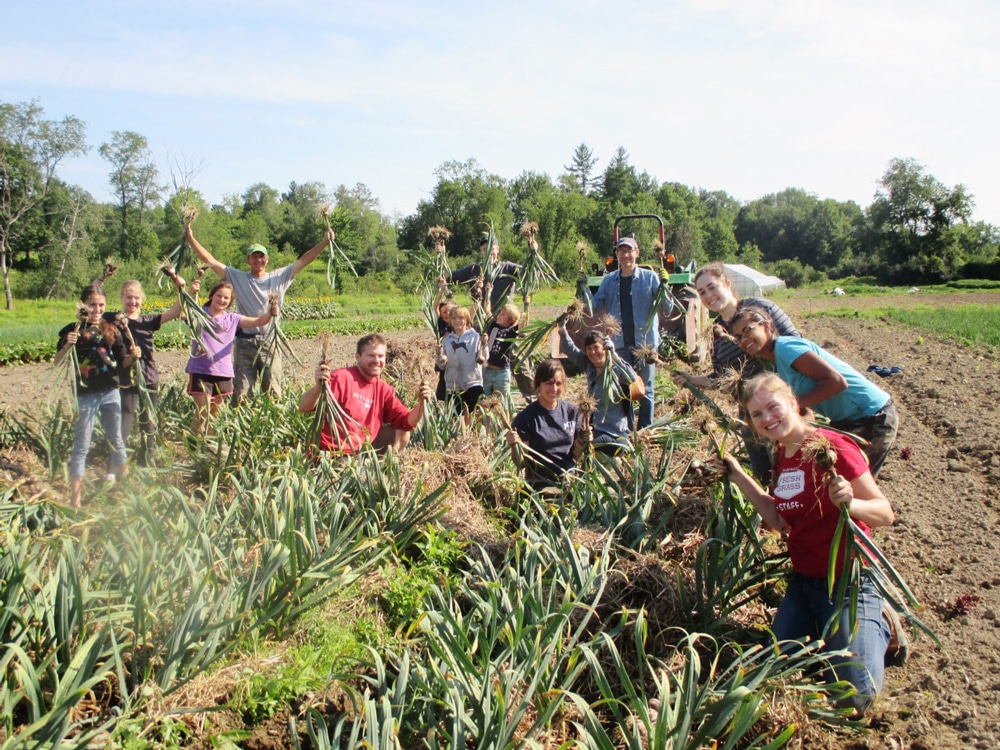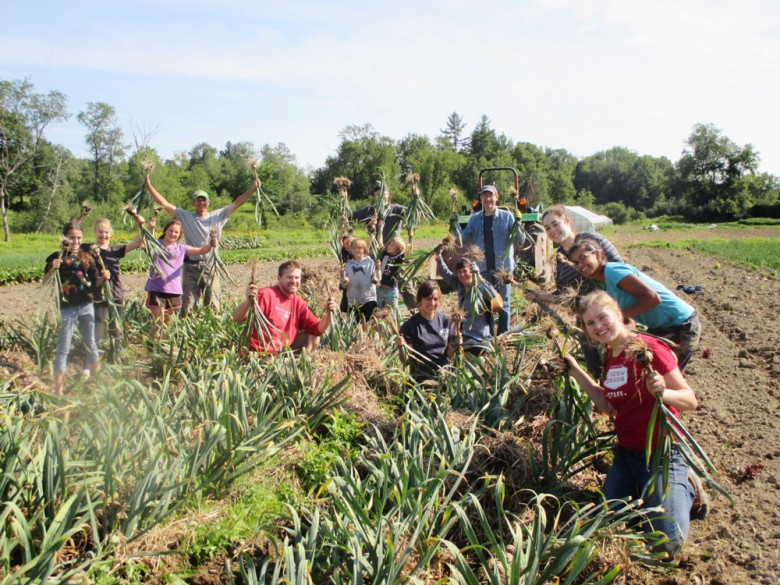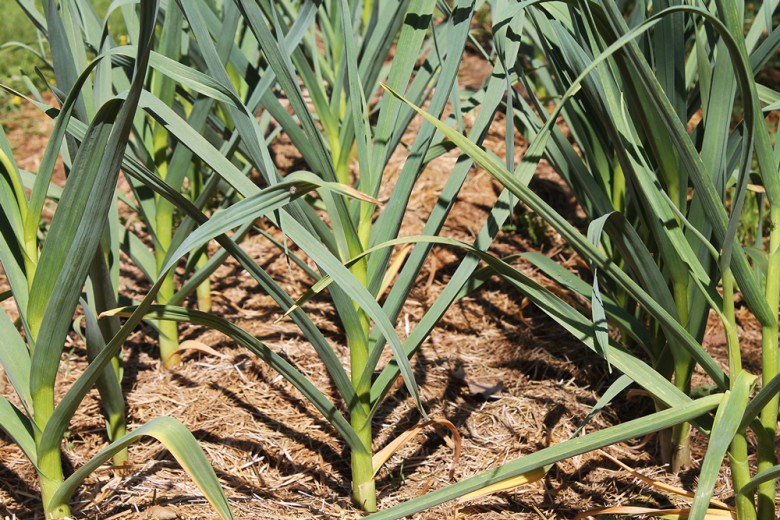August Promise | The Farmer’s Life
In late summer, when the garlic comes in, so do the memories of what came before.

Garlic harvesters at Caretaker Farm in Williamstown, Massachusetts, celebrate the season.
Photo Credit : Julia Shipley
Photo Credit : Julia Shipley
In January 1995, a want ad for farmhands caught my eye: “Caretaker Farm in Williamstown, Mass is a community supported farm that provides vegetables and fruits for 275 families. We annually train four apprentices within the annual framework of organic agriculture… Nestled in a picturesque valley, Caretaker Farm covers 34 acres of forest, meadow, pasture, vegetable fields, two ponds, and is bisected by a meandering stream. Internship starts: start of April; Internship ends: end of October. While previous farming experience is not a pre-requisite, the program is most suitable for those who feel they have a serious vocational interest in farming or agricultural development.”
During the interview, I told the farmers, Sam and Elizabeth, I yearned to learn something fundamentally human: how to grow food. I expounded on my desire to perform work that was helpful and healthful. They looked at me skeptically—zealots make terrible weeders, they don’t take orders, and they aren’t much use for anything other than pontificating around the supper table. Ideals—which were all I had at that point—don’t keep you dry in the rain, won’t soften your boredom while weeding one hundred onions, can’t soothe sunburn or comfort sore muscles.
I told them because of school athletics I had stamina; I could stoop and lift. God bless the repetitive gestures of my high school’s lacrosse and field hockey programs.
That April, I set down a crate of books and unrolled my sleeping bag inside an austere cabin near the meandering stream. The next morning, I woke at dawn, shrugged on my overalls and muck boots and my formal education in agriculture began. I seeded and weeded; I composted and mulched; I stooped and lifted—performing all the healthful and helpful tasks of growing vegetables in that picturesque valley.
As my ideals ripened into real work, and we began to reap what we had sowed, I realized that so much of what the farm grew were annuals—carrots, potatoes, peas, pumpkins—plants whose entire life span elapsed in a single season, the “one-time offer” as opposed to a “lifetime guarantee.”
April grew into May, May rushed into June, then all the days blurred until suddenly it was early August, and there we were: ruddy, rough-handed farmworkers bending over to harvest something none of us had planted—garlic.
The previous year’s apprentices had left us this gift—they’d been the ones to press individual cloves into the soil, cloves which had endured through winter, sprouted in spring and finally developed into whole new heads of garlic.

Photo Credit : Julia Shipley
Now we loosened the soil with our digging forks, grabbed ahold of each stalk and yanked up this miraculous crop, one we’d hardly earned. In some way it was as if the former farm crew had passed off their baton, one that was ours to carry into the barn to let cure throughout the waning summer days.
On foggy fall mornings, before clomping into the vegetable fields, we’d first head to the barn and clean the garlic—sloughing dried dirt off its brittle skin, clipping root fringe, occasionally breaking open some of the bulbs, raiding them for individual cloves. Unlike other vegetables, each individual garlic clove produces a new bulb containing identical genetic material to it. Which means that this food is sort of immortal.
One of the last tasks I performed, before rolling up my sleeping bag, hefting my book crate and leaving the streamside cabin, was planting garlic.
In mid-October, clad in coats and hats, we four seasoned farmworkers knelt beside the long empty row and tucked the cloves a thumb’s depth under the soil, something for the next crop of apprentices to harvest.
Twenty some summers have passed since my hands pawed the soil of Caretaker Farm.
Yet each August I draw on that one time memory—I fetch my digging fork and stride out to my garden rows teeming with green stalks. I loosen the soil, grip the stem and tug up the new, and in some sense, ancient garlic. For days afterwards, my hands remain un-scrubbably pungent.
Julia Shipley
Contributing editor Julia Shipley’s stories celebrate New Englanders’ enduring connection to place. Her long-form lyric essay, “Adam’s Mark,” was selected as one of the Boston Globes Best New England Books of 2014.
More by Julia Shipley

